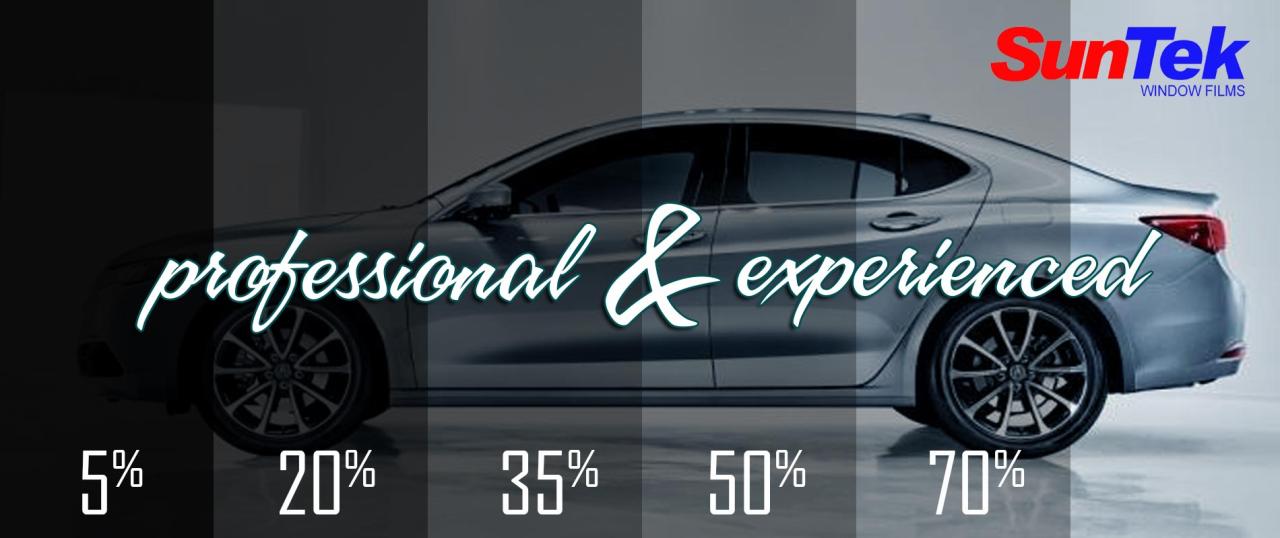Dealership Technology Solutions: Driving the Future of Automotive
Dealership technology solutions are transforming the automotive landscape, creating a seamless and personalized experience for customers while streamlining operations for dealerships. This shift is driven by evolving customer expectations and […]

Dealership technology solutions are transforming the automotive landscape, creating a seamless and personalized experience for customers while streamlining operations for dealerships. This shift is driven by evolving customer expectations and technological advancements that are changing the way dealerships operate and interact with their clientele.
Gone are the days of static showrooms and manual processes. Today’s customers demand a digital experience, with online research, virtual tours, and personalized communication playing a pivotal role in their purchasing decisions. Dealerships that embrace technology are better positioned to meet these demands, enhancing customer satisfaction and driving sales.
The Evolving Automotive Landscape

The automotive industry is undergoing a rapid transformation, driven by technological advancements and shifting consumer preferences. These changes are reshaping the dealership experience, creating new opportunities and challenges for businesses to adapt and thrive.
Impact of Technological Advancements
Technological advancements are fundamentally changing the way dealerships operate and interact with customers. These advancements encompass a wide range of areas, from digital marketing and online sales to vehicle connectivity and autonomous driving.
- Digital Marketing and Online Sales: The rise of online platforms and digital marketing tools has empowered consumers to research and purchase vehicles remotely. Dealerships must embrace digital strategies to reach and engage with customers in this online environment.
- Vehicle Connectivity: Connected car technology allows dealerships to provide remote diagnostics, software updates, and personalized services, enhancing customer convenience and loyalty.
- Autonomous Driving: The development of autonomous driving technology has the potential to revolutionize the automotive industry. Dealerships will need to adapt their services and infrastructure to support autonomous vehicles.
Changing Customer Expectations and Preferences
Today’s car buyers are more informed, tech-savvy, and demanding than ever before. They expect a seamless and personalized experience across all touchpoints, from online research to in-person interactions.
- Transparency and Convenience: Customers value transparency in pricing, vehicle information, and financing options. They also seek convenient and efficient service, such as online scheduling and remote service appointments.
- Personalized Experiences: Customers expect personalized recommendations, tailored financing options, and customized service experiences that cater to their individual needs and preferences.
- Seamless Integration: Customers expect a seamless integration between online and offline experiences, allowing them to easily transition from researching a vehicle online to scheduling a test drive or purchasing a vehicle in the dealership.
Challenges for Dealerships in Adapting to Change
Dealerships face several challenges in adapting to the evolving automotive landscape.
- Investing in Technology: Implementing new technologies, such as digital marketing platforms, customer relationship management (CRM) systems, and vehicle connectivity solutions, requires significant investment.
- Training and Development: Dealerships need to invest in training their staff to effectively utilize new technologies and provide exceptional customer service in a digitally driven environment.
- Adapting to New Business Models: The rise of online sales and subscription services is changing the traditional dealership model. Dealerships must adapt to these evolving business models to remain competitive.
The Role of Technology in Enhancing Dealership Operations
The automotive industry is undergoing a rapid transformation, driven by technological advancements that are reshaping how dealerships operate and interact with customers. From streamlining sales and marketing processes to optimizing service operations and inventory management, technology plays a crucial role in enhancing dealership efficiency, customer satisfaction, and profitability.
Streamlining Dealership Processes
Technology offers a wide range of solutions to streamline various dealership processes, enhancing efficiency and productivity.
- Customer Relationship Management (CRM) Systems: CRM systems centralize customer information, enabling dealerships to manage interactions, track leads, and nurture relationships effectively. They provide valuable insights into customer preferences and purchase history, facilitating personalized marketing campaigns and improved customer service.
- Digital Marketing Platforms: Digital marketing platforms empower dealerships to reach a wider audience and engage potential customers through targeted online advertising, social media campaigns, and website optimization. These platforms provide analytics and reporting tools to track campaign performance and optimize marketing strategies for maximum impact.
- Service Scheduling Tools: Service scheduling tools simplify the process of booking appointments, managing service schedules, and tracking customer vehicle history. These tools streamline communication between customers and service departments, reducing wait times and enhancing customer satisfaction.
- Inventory Management Systems: Inventory management systems help dealerships track vehicle stock levels, manage inventory flow, and optimize pricing strategies. They provide real-time visibility into inventory availability, facilitating efficient ordering, allocation, and sales processes.
Benefits of Technology Adoption
Adopting these technologies brings numerous benefits to dealerships, including:
- Increased Efficiency: Technology automates repetitive tasks, freeing up staff time for more strategic activities. This improves operational efficiency, reduces errors, and increases overall productivity.
- Enhanced Customer Satisfaction: Technology enables dealerships to provide personalized experiences, improve communication, and offer convenient services. This leads to increased customer satisfaction and loyalty.
- Improved Profitability: Technology helps dealerships optimize processes, reduce costs, and increase sales. This leads to improved profitability and a stronger financial position.
Data Analytics and Insights: Dealership Technology Solutions

In today’s data-driven world, understanding customer behavior and market trends is crucial for dealerships to thrive. Data analytics provides the tools to extract valuable insights from vast amounts of information, empowering dealerships to make informed decisions and optimize their operations.
Utilizing Data for Enhanced Operations
Dealerships can leverage data analytics to enhance various aspects of their operations, including marketing, sales, and customer service. By analyzing customer data, dealerships can identify patterns and trends, enabling them to personalize marketing campaigns, target the right audience, and optimize their sales strategies.
- Personalized Marketing Campaigns: Data analytics can help dealerships segment their customer base based on demographics, purchase history, and preferences. This allows them to create targeted marketing campaigns that resonate with specific customer groups, increasing the effectiveness of their marketing efforts. For example, a dealership could analyze data to identify customers who are likely to be interested in a new electric vehicle and tailor their marketing messages accordingly.
- Optimized Sales Strategies: By analyzing sales data, dealerships can identify which vehicles are selling well, which models are underperforming, and which sales techniques are most effective. This information can be used to adjust inventory levels, refine sales processes, and train sales staff to maximize sales performance. For instance, a dealership could analyze data to determine which sales incentives are most effective in driving sales and adjust their incentive programs accordingly.
- Enhanced Customer Service: Data analytics can help dealerships understand customer needs and preferences, enabling them to provide personalized and efficient customer service. By analyzing customer feedback, service history, and online reviews, dealerships can identify areas for improvement and tailor their customer service approach to meet individual needs. For example, a dealership could analyze data to identify customers who are most likely to require additional assistance during the service process and provide them with dedicated support.
Identifying Customer Needs and Predicting Trends
Data analytics allows dealerships to gain a deeper understanding of their customers and predict future trends, enabling them to stay ahead of the curve. By analyzing customer data, dealerships can identify emerging trends, anticipate customer needs, and develop strategies to capitalize on new opportunities.
- Customer Needs Identification: By analyzing customer feedback, social media conversations, and online reviews, dealerships can identify customer needs and pain points. This information can be used to improve products and services, develop new offerings, and address customer concerns proactively. For example, a dealership could analyze customer feedback to identify a common complaint about the service department and implement changes to address this issue.
- Predicting Future Trends: Data analytics can be used to predict future trends in the automotive industry, such as the demand for specific vehicle types, the adoption of new technologies, and changes in consumer preferences. This information can help dealerships anticipate future needs and adjust their strategies accordingly. For instance, a dealership could analyze data to predict the increasing demand for electric vehicles and prepare to meet this demand by investing in electric vehicle infrastructure and training staff on electric vehicle technology.
Making Informed Business Decisions, Dealership technology solutions
Data analytics provides dealerships with the insights needed to make informed business decisions and optimize their operations for profitability. By analyzing data, dealerships can identify areas for improvement, allocate resources effectively, and make strategic investments.
“Data analytics is essential for dealerships to understand their customers, predict market trends, and make informed business decisions. By leveraging data, dealerships can improve their operations, enhance customer service, and drive profitability.”
Closure

The future of dealerships lies in leveraging technology to create a customer-centric experience that is both engaging and efficient. By embracing innovative solutions, dealerships can optimize operations, personalize customer interactions, and stay ahead of the curve in a rapidly evolving automotive landscape. This approach not only benefits customers but also strengthens dealerships’ competitive edge and ensures their continued success in the years to come.
Dealership technology solutions are constantly evolving, and one area that has seen significant innovation is in the realm of automotive repair. For instance, the c.a. technologies pressure pot is a prime example of how technology can enhance efficiency and precision in the repair process, ultimately benefiting both the dealership and the customer.










